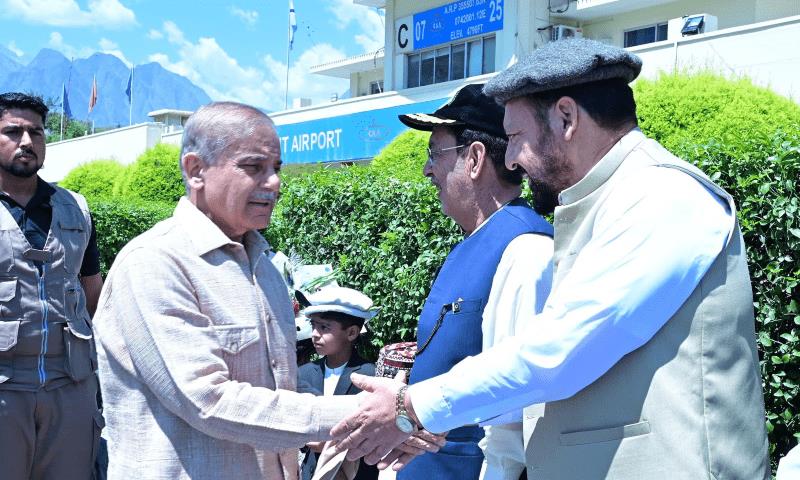Prime Minister Shehbaz Sharif landed in Gilgit-Baltistan (GB) on Monday for a one-day visit to assess the destruction caused by deadly floods and landslides in late July. The disaster has killed 10 people (mostly tourists), left 10-15 missing, and damaged 500+ houses, roads, and critical infrastructure. GB’s government estimates Rs20 billion in losses, with Chief Minister Gulbar Khan urgently requesting Rs7 billion in federal emergency funds for rescue and rehabilitation.
Accompanied by federal ministers, PM Shehbaz will distribute relief funds, meet affected families, and receive briefings on the devastation. His visit follows a high-level meeting last week where he pledged full federal support for GB and Azad Kashmir. GB spokesperson Faizullah Faraq stressed that “federal cooperation is oxygen for GB”, as displaced families await urgent aid. The PM’s delegation includes Climate Change Minister Dr. Musadik Malik and Kashmir Affairs Minister Amir Muqam, signaling a focus on long-term disaster preparedness.
The region faces increasing climate-induced disasters, including glacial bursts, cloudbursts, and erratic monsoons, which have triggered deadly floods. Just days ago, a glacial burst in Bagrot Valley killed a 12-year-old boy and injured his father. Meanwhile, Rescue 1122 saved five family members trapped in Ghizer District but continues searching for others swept away in floodwaters. Experts warn that rising temperatures and melting glaciers will escalate such disasters.
While immediate relief is critical, GB officials urge sustainable federal policies to combat climate threats. PM Shehbaz’s visit highlights the need for infrastructure resilience, early warning systems, and climate adaptation funds. As GB rebuilds, the world’s fastest-melting glaciers pose an ongoing risk, demanding urgent action to protect vulnerable communities.














